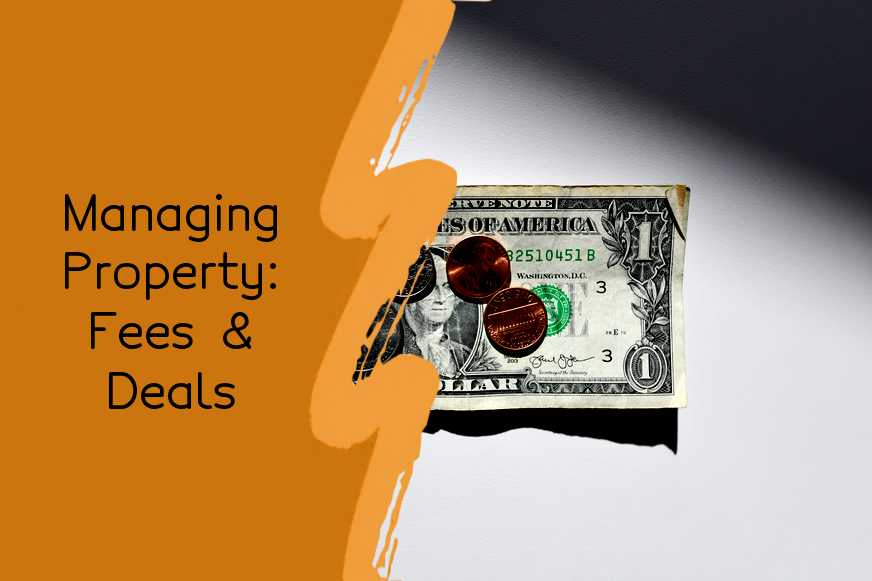Property management fees vary depending on several factors, including the location, type of property, and services provided. However, on average, property management fees typically range from 8% to 12% of monthly rental income. For example, if a property generates $1,500 per month in rent, the property management fee would be between $120 and $180 per month.
Common costs and negotiation factors may also come into play when determining property management fees. These costs can include advertising and marketing expenses, administrative and accounting expenses, maintenance and repairs, legal fees, and eviction costs. Property management firms usually charge additional fees for these services, depending on the scope and complexity of the work.
Negotiation may also play a role in property management fees. Property owners can negotiate with management firms on the fee structure, contract length, and scope of services. For example, owners may request a lower fee in exchange for a longer-term agreement or may negotiate to include additional services such as bookkeeping or marketing.
Overall, it is important for property owners to thoroughly research and compare property management firms in their area and negotiate terms that will best fit their needs and budget.
Typical Property Management Fees
Property management fees are the fees that a property owner pays to a property management company for the management of their rental properties. These fees cover various services that the management company provides, such as collecting rent, marketing the property, managing tenant relations, handling maintenance and repair issues, and accounting and financial reporting.
The typical property management fees vary depending on the location and size of the property, the specific services required, and the agreement between the property owner and the management company. However, these are the common fees charged by most management companies:
- 1Monthly Management Fee: This is the most common fee that property managers charge and is typically a percentage of the monthly rent. On average, property management companies charge between 8% and 12% of the monthly rent. For example, if the monthly rent is $1,500, and the management fee is 10%, the fee would be $150 per month.
- 2Leasing Fee: This fee is charged when a new tenant is found and signed up. This fee is typically equal to one month's rent and is deducted from the first month's rent. In some cases, the leasing fee can be a percentage of the annual rent.
- 3Renewal Fee: If a tenant chooses to renew their lease, the property management companies charge a renewal fee. This fee is typically between 50% to 100% of the leasing fee.
- 4Advertising Fee: If the rental unit is vacant, the company may charge an advertising fee to advertise the property on various listing sites.
- 5Maintenance and Repair Fee: Property management companies may charge a fee for handling maintenance and repair requests. This fee can be a fixed amount or a percentage of the cost of the repair.
- 6Eviction Fee: Property management companies may charge a fee for handling the eviction process. This fee can be a fixed amount or a percentage of the total cost of the eviction process.
In conclusion, the total cost of property management fees is dependent on the level of service required and the specific agreement between the property owner and the management company. Before signing a contract, property owners should make sure that they fully understand the costs associated with the services provided to avoid any surprises later.
Factors that Impact Property Management Costs
Property management costs refer to the management fees that landlords pay to the property management companies to manage their rental properties. These fees cover a range of services, including rent collection, maintenance and repairs, tenant screening and selection, lease signing and renewal, eviction management, and handling of legal and financial matters related to the property.
Several factors impact the overall property management costs, and some of the most significant factors are:
- 1Property location and type: The location of the property and its type can significantly impact the management costs. Managing a high-end luxury apartment in a prime location will be more expensive than managing a small studio in a less desirable area.
- 2Property size: The size of the property will also affect the management cost as larger properties require more time, effort, and resources to manage than smaller ones.
- 3Property condition: The condition of the property can also impact the management costs. An older property that requires more maintenance and repairs will cost more to manage than a newer property with less maintenance needs.
- 4Tenant turnover: Tenant turnover can also impact the management costs. Every time a tenant moves out, the property management company must prepare the property for a new tenant, which can be time-consuming and costly.
- 5Amenities: Properties with amenities such as a pool, gym, or common area will require additional maintenance and supervising, which will increase the property management costs.
- 6Management company fees: Property management companies charge different fees depending on the services provided and the level of expertise they offer. Therefore, choosing the right company can also impact the overall management costs.
In conclusion, property management costs are impacted by several factors, and landlords need to be mindful of these factors when budgeting for the management fees. They should also work with a reputable property management company that offers good value for money and can provide quality services to minimize the overall costs.
How to Negotiate Lower Property Management Fees
- 1Research and compare fees: Before discussing with the property management company, research and compare the fees offered by different companies in the area. This will give you an idea of the standard rate and help you negotiate better.
- 2Highlight your loyalty: If you have been a long-term client of the property management company, use this as leverage to negotiate lower fees. Highlight your loyalty and the trust you have in the company, and explain why you deserve a lower rate.
- 3Show that you can bring them more business: Property management companies may be willing to lower their fees if you can guarantee more business for them. If you have additional properties or know people who are looking for property management services, mention this to the company.
- 4Ask for a discount if you are paying in advance: Some property management companies may offer discounts if you pay for a certain period in advance. Ask if this is a possibility and how much you can save by paying upfront.
- 5Be flexible: Property management companies may not be willing to lower their fees, but they may be open to negotiating the services they provide. Be flexible and willing to compromise on certain services in exchange for a lower rate.
- 6Discuss the value of their services: Property management companies provide a valuable service, and it's important to acknowledge that. Discuss how their services benefit you and how you appreciate their professionalism and expertise. At the same time, explain your financial situation and why you need a lower rate.
By combining these strategies, you may be able to negotiate a lower property management fee. However, it's important to approach the negotiation respectfully and be prepared to compromise.
Are Property Management Fees Tax Deductible?
Property management fees are expenses that property owners incur to maintain their rental properties. These fees cover services such as rent collection, tenant screening, maintenance, repairs, and administrative tasks. The question arises whether these fees are tax-deductible or not.
The good news is that property management fees are tax-deductible for rental property owners. According to the Internal Revenue Service (IRS), property management fees are considered as an ordinary and necessary expense for maintaining and managing a rental property. Therefore, these expenses can be claimed as a tax deduction on a rental property owners income tax return.
However, its important to note that not all property management fees are tax-deductible. The IRS only allows deductions for expenses that are reasonable and necessary to manage or maintain a rental property. For example, if a property owner pays for a spa day for their property manager, this expense would not be considered tax-deductible.
Another important consideration when claiming property management fees as a tax deduction is to ensure that the expenses are accurately recorded. Property owners should keep track of all property management fees they pay and be able to provide supporting documentation for these expenses. This documentation can include receipts, invoices, and contracts with property management companies.
In summary, property management fees are tax-deductible for rental property owners. However, its important to ensure that these fees are reasonable and necessary expenses for managing and maintaining the rental property and to keep accurate and detailed documentation of all expenses.
Bottom Line: Are Property Management Companies Worth it?
Property management companies are third-party entities that assist property owners in managing their rental properties. They offer a wide array of services, such as tenant screening, rent collection, property maintenance, and accounting. While property owners may be hesitant to fork over a portion of their rental income to these companies, there are several advantages to consider.
Firstly, property management companies can help mitigate legal issues. They have a deep understanding of laws that govern rental properties, such as tenant-landlord laws and fair housing regulations. They can ensure that the property is compliant with these laws, which can prevent costly legal suits and fines.
Secondly, property management companies can assist in tenant screening. Finding quality tenants is crucial for the financial success of the rental property. Screening potential tenants can be time-consuming and challenging for property owners. Property management companies have the necessary experience and tools to properly vet applicants and can find suitable tenants for the property.
Thirdly, property management companies can help with rent collection. Collecting rent can be an awkward and uncomfortable task, especially if the tenant is behind on payments. Property management companies can take on this responsibility, reducing stress for the property owner and ensuring that the rent is collected on time.
Fourthly, property management companies can provide assistance with property maintenance and repairs. Property owners may not have the expertise or time to perform these tasks themselves. Property management companies have a network of qualified contractors who can handle these tasks in a timely and cost-effective manner.
Finally, property management companies can provide valuable insights on the local rental market. They are aware of the rental trends, demographic changes, and expected rental prices in the area. By using their expertise, property management companies can help the property owner maximize their rental income.
Overall, property management companies can be incredibly valuable for property owners, especially for those who live far from their rental properties, have multiple rental properties, or are busy with other obligations. The pros typically outweigh the cons and it is worth considering the cost as an investment in the success and profitability of the rental property.
Just one more thing: if you liked the article, please like us on social media and share this article with friends.



